 Your new post is loading...
 Your new post is loading...

|
Scooped by
Gust MEES
|
Kids do crazy things, but we expect more from grown-ups, don’t we? Unfortunately, that’s not always the case. Folks scream obscenities at ballgames, bully people on social media, and treat others with total disrespect. If you think this behavior is rude, insensitive, and tasteless, you’re right. But why is it so prevalent? The truth is, some people behave this way for personal gain; some folks don’t know better; and others know they’ll get away with it — because they have in the past. Some grown-ups never grow up.
While some indiscretions were once considered outlandish, we’ve become desensitized to these actions. It’s troubling that some of this behavior could have been avoided, but too many of us didn’t speak up. Instead, we closed our eyes to the poor behavior and waited for others to make the first move. The consequence is that wrongs committed by enough people become the norm over time. We have no one to blame except ourselves.
As leaders, role models, and parents, we must utilize every opportunity to reinforce the values that we hold dear.
What Values Do You Cherish?
Are polite manners a thing of the past? Should people honor their word? Is it Pollyanna to expect people to do what’s right? I think not! But if we don’t promote good values, don’t be surprised when bad ones become the norm. “How do we improve the situation?” you ask.
First, we must modify our criterion of excellence. It’s not what you have but who you are that counts. Moral character matters! Learn more / En savoir plus / Mehr erfahren: https://www.scoop.it/t/21st-century-learning-and-teaching/?&tag=Frank+SONNENBERG http://www.scoop.it/t/21st-century-learning-and-teaching/?&tag=Character http://www.scoop.it/t/21st-century-learning-and-teaching/?q=ethics https://www.scoop.it/t/21st-century-learning-and-teaching/?tag=Values http://www.scoop.it/t/21st-century-learning-and-teaching/?tag=Growth+Mindset

|
Scooped by
Gust MEES
|
“But we’ve always done it that way” is the comfortable, regular, and normal barrier to enacting change. And, our reluctance to change — in our personal and our professional lives — not only limits progress, it also prizes old ways of doing and being that, by design, were exclusive. When we rely on the ways we have always done it, likely we are also relying on our past efforts, and history on many fronts tells us that our past efforts weren’t the most inclusive or equitable. Learn more / En savoir plus / Mehr erfahren: https://gustmees.wordpress.com/2017/06/02/still-following-we-have-always-done-it-this-way-or-already-on-growth-mindset/

|
Scooped by
Gust MEES
|
If you define winning as getting the upper hand, backing your opponent into a corner, and winning at any expense, you’ve got it all wrong. You may win in the short term, but think about the relationship going forward. Do those actions build trust, teamwork, and respect? I think not. You’ve probably created enough animosity, distrust, and jealousy to last a lifetime. In other words, you may have won the battle, but lost the war. There’s a better way…winning doesn’t have to be at someone’s expense.
Compromise: A Win-Win Strategy
Some people need to win at all costs because their ego won’t accept anything less. They’d rather win personally than accomplish something meaningful. Compromise isn’t a synonym for surrender; it’s a winning battle plan. Learn more / En savoir plus / Mehr erfahren: http://www.scoop.it/t/21st-century-learning-and-teaching/?&tag=Win-Win-Situation http://www.scoop.it/t/21st-century-learning-and-teaching/?&tag=Frank+SONNENBERG

|
Scooped by
Gust MEES
|
Everyone is born with the potential for greatness. What happens next is up to you. You get to choose which path you take, how high to set the bar for yourself, and how hard you’re willing to work to clear it. You get to decide how to spend your time, who to spend it with, and what you’re willing to forgo when time runs short. Every choice that you make and every action that you take has consequences, but who better to decide what’s best for you –– than you. It’s your life to live. Own it! Securing the ultimate prize takes strength and courage. You’re going to face challenges that seem insurmountable and suffer setbacks along the way, but faith, hard work, and determination will see you through. Don’t listen to naysayers or allow others to lead you astray; follow your heart and let your dreams lead the way. You owe it to yourself to be the best you can be. You’ll travel this road only once. Believe in yourself and make yourself proud. There are no dress rehearsals in life. Learn more / En savoir plus / Mehr erfahren: http://www.scoop.it/t/21st-century-learning-and-teaching/?&tag=Character http://www.scoop.it/t/21st-century-learning-and-teaching/?&tag=Frank+SONNENBERG

|
Scooped by
Gust MEES
|
Does the character of our leaders matter? According to research done by KRW International it really, really, does!
Welcome to a Leadership Channel Podcast on TotalPicture. Joining Peter Clayton today is Fred Kiel, PhD, co-founder of KRW International, the author of Return On Character. For more than thirty years, he has helped Fortune 500 CEOs and senior executives build organizational effectiveness through leadership excellence and mission alignment. Strategy+Business considers Return on Character one of the best business books of 2015.
With Credit Suisse replacing their CEO after years of fines and the future of companies like Uber and Yahoo! being questioned because of bad CEO behavior, (or the current CEO poster boy, infamous former Turing CEO Martin Shkreli), could this be the wakeup call we need to start measuring how the character of a leader impacts their organization's performance?
For the first time we now have data to measure the correlation. In Return On Character (Harvard Business Review Press,), the findings are revealed from KRW International's seven-year study on the financial impact of character. Learn more / En savoir plus / Mehr erfahren: http://www.scoop.it/t/21st-century-learning-and-teaching/?&tag=LeaderShip http://www.scoop.it/t/21st-century-learning-and-teaching/?&tag=LeaderSkills http://www.scoop.it/t/21st-century-learning-and-teaching/?&tag=Character http://www.scoop.it/t/21st-century-learning-and-teaching/?&tag=Soft+Skills Check also: - http://www.scoop.it/t/21st-century-learning-and-teaching?tag=Emotional-Intelligence - http://www.scoop.it/t/21st-century-learning-and-teaching?tag=Emotions-and-Learning - http://www.scoop.it/t/21st-century-learning-and-teaching?tag=Empathy - http://www.scoop.it/t/21st-century-learning-and-teaching?tag=EQ - http://www.scoop.it/t/21st-century-learning-and-teaching?tag=Daniel-GOLEMAN

|
Scooped by
Gust MEES
|
Verstehen ist das inhaltliche Begreifen eines Sachverhalts, das nicht nur in der bloßen Kenntnisnahme besteht, sondern auch und vor allem in der intellektuellen Erfassung des Zusammenhangs, in dem der Sachverhalt steht. Verstehen bedeutet nach Wilhelm Dilthey, aus äußerlich gegebenen, sinnlich wahrnehmbaren Zeichen ein „Inneres", Psychisches zu erkennen.

|
Scooped by
Gust MEES
|

|
Scooped by
Gust MEES
|

|
Scooped by
Gust MEES
|
Jealousy is an emotion, and the word typically refers to the thoughts and feelings of insecurity, fear, concern, and anxiety over an anticipated loss of status or something of great personal value, particularly in reference to a human connection. Jealousy often consists of a combination of emotions such as anger, resentment, inadequacy, helplessness and disgust.

|
Scooped by
Gust MEES
|
Why are some people so much better at expressing empathy than others?
Psychologists define empathy as sensitivity to the emotions, both positive and negative, of other people. You can feel empathic—or empathetic (the two words are used interchangeably)—to someone who is feeling positive feelings, such as amusement or joy, in addition to someone who is feeling sadness or anger. “Empathy is being in the heart of another person,” says Susan Kuczmarski, a cultural anthropologist and adjunct faculty member in the executive education program at Northwestern University’s Kellogg School of Management.
Researchers have determined that people react in one of two ways when faced with another person’s emotions. Sometimes people respond with “empathic concern” or caregiving. They see themselves as a source of comfort or support for the other person.
But sometimes people feel threatened by the other person’s emotions and focus instead on themselves. They might try to help, to minimize their own discomfort. Typically they distance themselves. Psychologists call this response “empathic distress.” Learn more / En savoir plus / Mehr erfahren: http://www.scoop.it/t/21st-century-learning-and-teaching/?tag=Empathy http://www.scoop.it/t/21st-century-learning-and-teaching/?tag=Soft+Skills

|
Scooped by
Gust MEES
|
The Continuum of Self-Efficacy is about building self-esteem, becoming self-confident and persevering to achieve any goal set.

|
Scooped by
Gust MEES
|

|
Scooped by
Gust MEES
|
|

|
Scooped by
Gust MEES
|
THINKING CLASSROOM PHILOSOPHY IN 4 QUESTIONS What ?
Teach learners how to think and learn Discover, value and use learners' strengths and interests
Combine the best new educational practices with the best traditional ones
Build and enrich learning relationships
Develop growth mindset characteristics and grit Why ?
Because learners need knowledge, flexible skills and grit to succeed
Because future economic & life success depends on skills and creativity
Because everyone learns in a unique way
Because education must continually prepare learners for an exciting but uncertain future
Because of Article 13a, UN Convention on the Rights of the Child How ?
By continually increasing the effectiveness of teaching
By teaching for character as well as content
By valuing each learner for what they do well
By educating for skills, character and values as well as knowledge
By preparing learners for their futures not our pasts
By valuing, supporting and resourcing all educators What if...
All learners were engaged, excited and interested in their lessons?
'School' evolved to match different lifestyles and different learning styles?
Teachers had time to enjoy their profession and real opportunities to thrive?
There was only one initiative and it was called "Learning"? Learn more / En savoir plus / Mehr erfahren: https://www.scoop.it/t/21st-century-learning-and-teaching/?&tag=Soft+Skills http://peterliljedahl.com/wp-content/uploads/Building-Thinking-Classrooms-Feb-14-20151.pdf

|
Scooped by
Gust MEES
|

|
Scooped by
Gust MEES
|
Bigger issues: #1. Unfairness is necessary. Giving second chances, for example, isn’t fair to those who perform on schedule and within expectation. But, not giving second chances is cruel. #2. Fairness is merciless. Mercy is not getting what you deserve. In other words, mercy isn’t fair. #3. Equal opportunity must include reward or lack of reward. Those who seize opportunities earn reward. Those who don’t seize opportunities don’t earn reward. It’s important to note that it’s not necessary to punish those who don’t seize opportunity. Rewarding teams always includes some unfairness.
#4. Fairness – treating everyone the same – de-motivates high achievers and rewards low performers. #5. Fairness, when it means everyone is treated the same, promotes inaction. If you can’t be do something for everyone then you can’t do it for anyone. The result is you don’t do much. Learn more / En savoir plus / Mehr erfahren: http://www.scoop.it/t/21st-century-learning-and-teaching/?&tag=Counterfeit+Leadership http://www.scoop.it/t/21st-century-learning-and-teaching/?&tag=Growth+Mindset

|
Scooped by
Gust MEES
|

|
Scooped by
Gust MEES
|

|
Scooped by
Gust MEES
|

|
Scooped by
Gust MEES
|

|
Scooped by
Gust MEES
|

|
Scooped by
Gust MEES
|
Aristotle (in Rhetoric) defined envy (φθόνος phthonos) "as the pain caused by the good fortune of others", while Kant defined it as "a reluctance to see our own well-being overshadowed by another's because the standard we use to see how well off we are is not the intrinsic worth of our own well-being but how it compares with that of others" (in Metaphysics of Morals).

|
Scooped by
Gust MEES
|
Stop avoiding what scares you. You need to speak in public, but your knees buckle even before you reach the podium. You want to expand your network, but you’d rather swallow nails than make small talk with strangers. Speaking up in meetings would further your reputation at work, but you’re afraid of saying the wrong thing. Situations like these — ones that are important professionally, but personally terrifying — are, unfortunately, ubiquitous. An easy response to these situations is avoidance. Who wants to feel anxious when you don’t have to? But the problem, of course, is that these tasks aren’t just unpleasant; they’re also necessary. As we grow and learn in our jobs and in our careers, we’re constantly faced with situations where we need to adapt our behavior. It’s simply a reality of the world we work in today. And without the skill and courage to take the leap, we can miss out on important opportunities for advancement. How can we as professionals stop building our lives around avoiding these unpleasant, but professionally beneficial, tasks? Learn more / En savoir plus / Mehr erfahren: http://www.scoop.it/t/21st-century-learning-and-teaching/?tag=Growth+Mindset http://www.scoop.it/t/21st-century-learning-and-teaching/?tag=Comfort+Zone http://www.scoop.it/t/21st-century-learning-and-teaching/?tag=Character
Via Ariana Amorim, Kevin Watson, Mark E. Deschaine, PhD

|
Scooped by
Gust MEES
|
|



 Your new post is loading...
Your new post is loading...




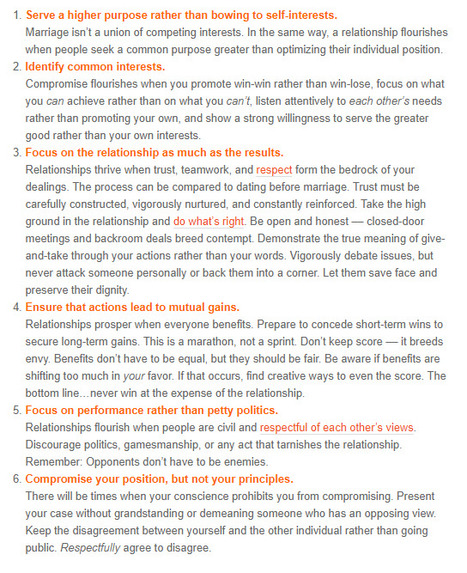


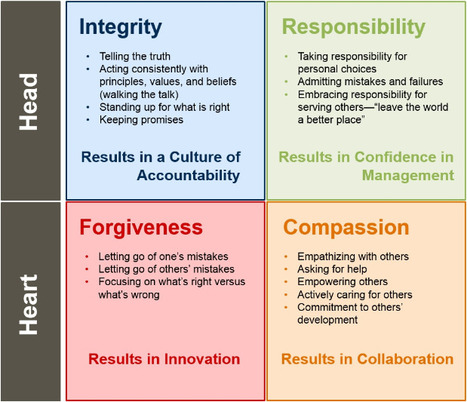

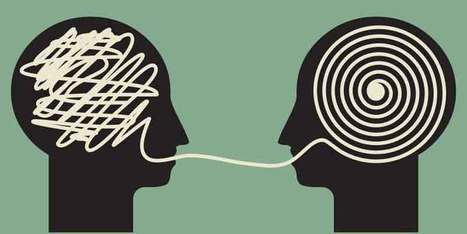



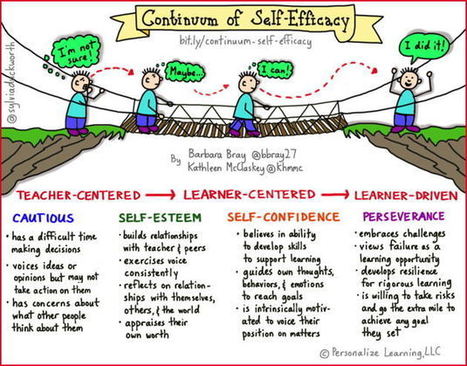
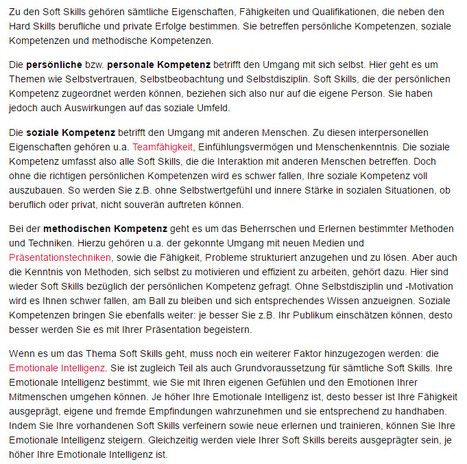


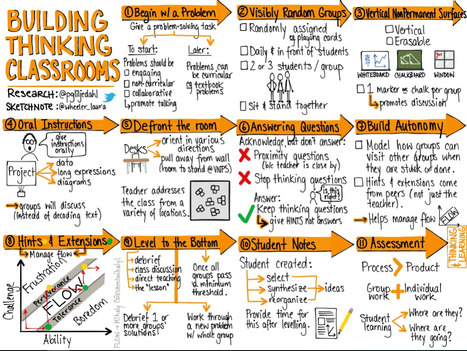


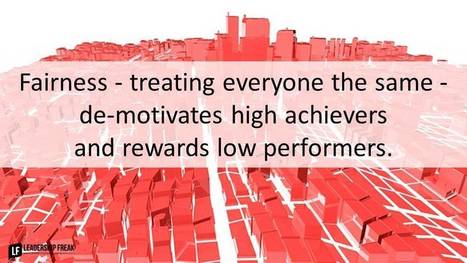


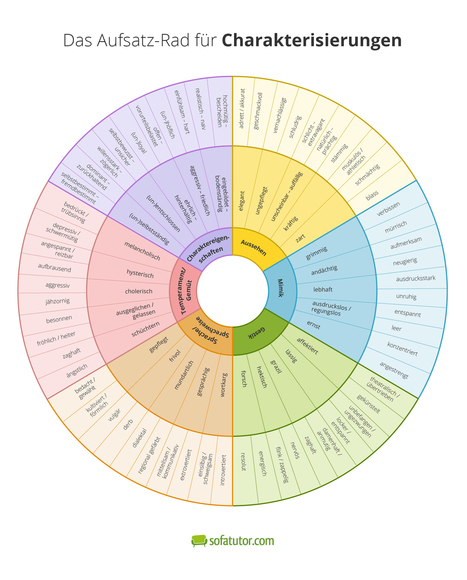
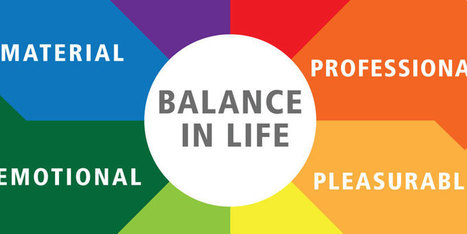


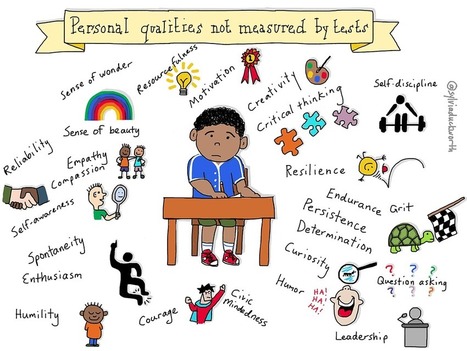









Kids do crazy things, but we expect more from grown-ups, don’t we? Unfortunately, that’s not always the case. Folks scream obscenities at ballgames, bully people on social media, and treat others with total disrespect. If you think this behavior is rude, insensitive, and tasteless, you’re right. But why is it so prevalent? The truth is, some people behave this way for personal gain; some folks don’t know better; and others know they’ll get away with it — because they have in the past. Some grown-ups never grow up.
While some indiscretions were once considered outlandish, we’ve become desensitized to these actions. It’s troubling that some of this behavior could have been avoided, but too many of us didn’t speak up. Instead, we closed our eyes to the poor behavior and waited for others to make the first move. The consequence is that wrongs committed by enough people become the norm over time. We have no one to blame except ourselves.
As leaders, role models, and parents, we must utilize every opportunity to reinforce the values that we hold dear.
What Values Do You Cherish?
Are polite manners a thing of the past? Should people honor their word? Is it Pollyanna to expect people to do what’s right? I think not! But if we don’t promote good values, don’t be surprised when bad ones become the norm. “How do we improve the situation?” you ask.
First, we must modify our criterion of excellence. It’s not what you have but who you are that counts. Moral character matters!
Learn more / En savoir plus / Mehr erfahren:
https://www.scoop.it/t/21st-century-learning-and-teaching/?&tag=Frank+SONNENBERG
http://www.scoop.it/t/21st-century-learning-and-teaching/?&tag=Character
http://www.scoop.it/t/21st-century-learning-and-teaching/?q=ethics
https://www.scoop.it/t/21st-century-learning-and-teaching/?tag=Values
http://www.scoop.it/t/21st-century-learning-and-teaching/?tag=Growth+Mindset